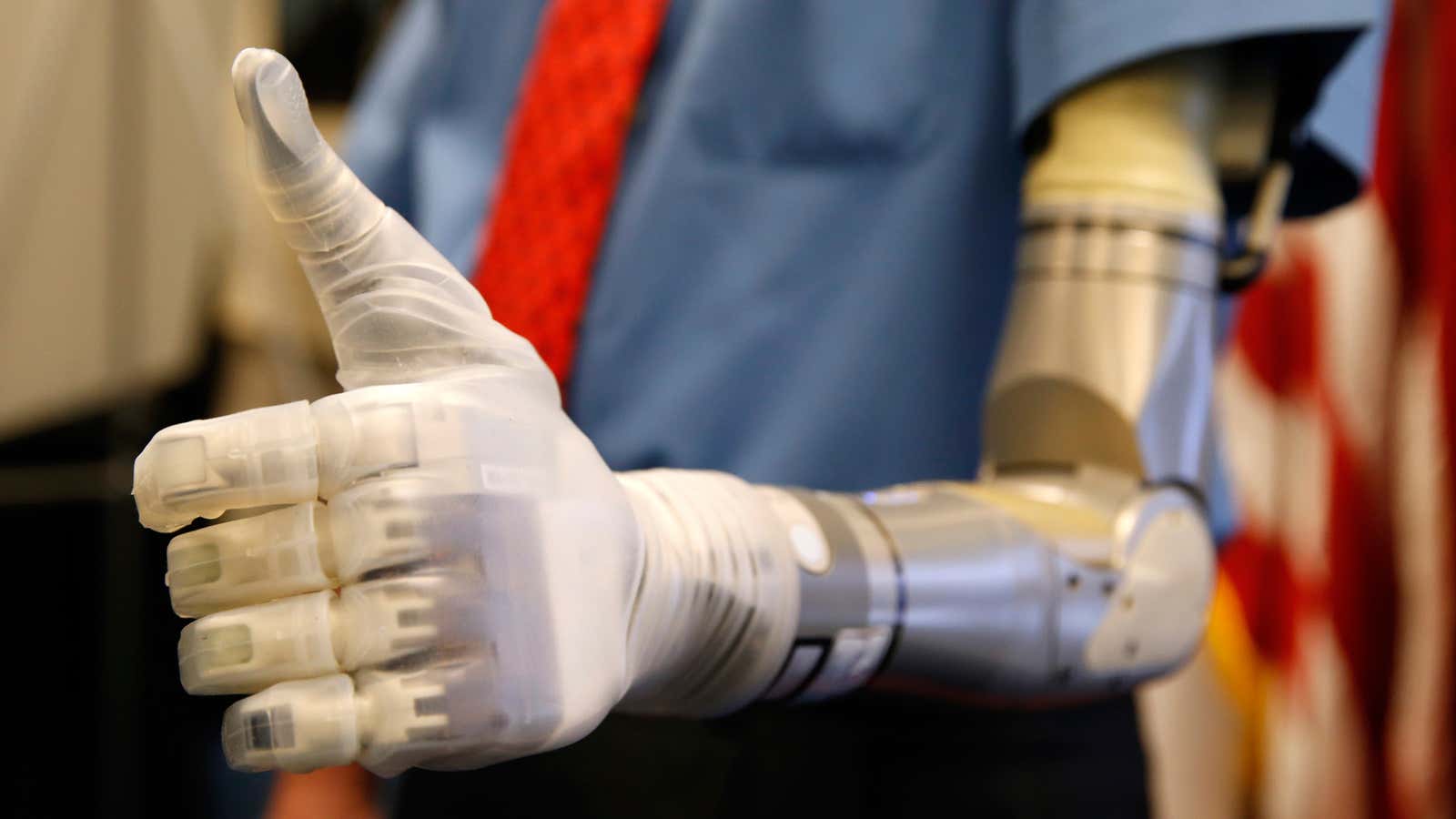He definitely remembers putting the keys by the front door when he got home last night. But they’re not there. So where could they be? He presses a button and all of the sudden he can see it clear as day—he never took them out of his jacket pocket, so they must be upstairs.
If work being backed by the US Defense Advanced Research Projects Agency (DARPA) goes according to plan, we one day will be able to implant chips into our brains that will make sure we never forget anything. And although this sounds like science fiction—perhaps a movie starring Keanu Reeves from the 90s—it’s quickly becoming a reality. Scientists have already tested out implants in people suffering from brain injuries to improve their memory, the defense agency announced at a conference in September.
DARPA has multiple brain-improvement projects in the works, but its Restoring Active Memory project (or RAM, an apparent play on the acronym for a type of computer memory) has a goal of restoring the memory functions of US soldiers returning from the battlefield with traumatic brain injuries. According to the Atlantic’s Annie Jacobsen, 300,000 soldiers came home from Iraq and Afghanistan with brain injuries. DARPA’s program aims to develop an implantable, wireless device that could aid those soldiers’ cognitive abilities both during and after wars.
To start, DARPA is working to figure out how neurons in the human brain actually encode memories—a daunting task in and of itself. Once those processes have been mapped out, scientists would then work to create computer models to mimic how the brain functions, with the end goal of being able to implant devices that could trigger those processes if neurons, or the connections between neurons, get damaged.
At the September conference, DARPA said it had implanted temporary sensors into patients undergoing brain surgery, according to Popular Science. Scientists were able to detect signals in the patients’ brains during the process of forming and recalling memories. In the future, DARPA wants to develop permanent, “closed loop” systems that can actually help with memory recall.
“As the technology of these fully implantable devices improves, and as we learn more about how to stimulate the brain ever more precisely to achieve the most therapeutic effects,” Justin Sanchez, DARPA’s biological technologies program manager, told Popular Science at the conference. “I believe we are going to gain a critical capacity to help our wounded warriors and others who today suffer from intractable neurological problems.”
The RAM project was first unveiled by President Obama in 2014, as part of the funding for DARPA’s wider brain initiative. At that time, the agency, working with the Veterans Affairs department and the Pentagon, announced it will spend the next five years—and nearly $80 million—developing “minimally invasive neurotechnologies that will increase the ability of the body and brain to induce healing,” according to The Washington Post. As part of the funding, DARPA is also researching building robotic limbs that humans can control with their minds, and ways for the human body to heal itself with remote controls.
